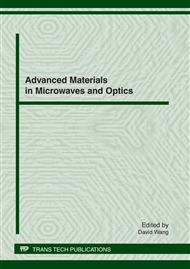p.287
p.291
p.297
p.301
p.311
p.317
p.325
p.330
p.335
QoS Evaluation Model for Web Services Composition
Abstract:
With the gradual development and standardization of services-oriented computing (SOC), it becomes a rapidly growing software developing pattern to composition Web services into applications. Since Web services composition are long-lasting, loosely coupled and cross application and administrative boundaries, it is essential to choose proper services to compose the composite Web services to meet user’s requirements. This paper presents a QoS evaluation method for aggregation services when failure occurs and defines QoS evaluation model of the common aggregation patterns of transaction compensation. Experiment results show that when it is used to evaluate the QoS of composite Web services, QoS evaluation method of aggregation transaction compensation is much better than the Web services composition method based on random selection, and it is feasible and effective.
Info:
Periodical:
Pages:
311-316
DOI:
Citation:
Online since:
January 2012
Authors:
Price:
Сopyright:
© 2012 Trans Tech Publications Ltd. All Rights Reserved
Share:
Citation:


